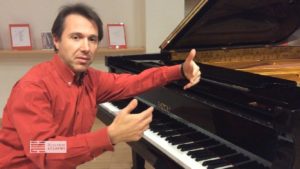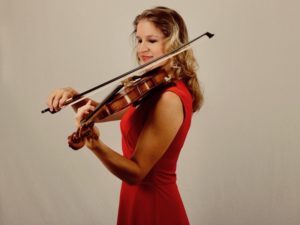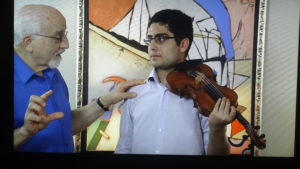Young Musicians Now Seek Learning Variety
It’s no secret that every successful musician in the world has had at least one influential teacher in their life. However, it also isn’t surprising to learn that the world’s best musicians have had multiple teachers throughout their career.
So why do private teachers insist that their students only listen to them?
Based on recent studies by music organizations around the world (including iClassical Academy), it was found that students are constantly seeking different teachers for different areas of their instrument or voice range. New generations can study more in depth at home online, with new learning possibilities. They want different influences.
Yet, the issue of singular teacher influences persists among the worldwide music community. This has caused many great musicians to fall short of true professional success on the world stage. With increasing pressure on classical music to become more creative, young musicians interested in being performers have drastically decreased in numbers due to outdated teaching methods.
There are a few key methods in which musicians learn:
Private Teachers (In Person)
The traditional method of showing up to a private teacher’s home is still alive and well, and nothing will completely replace it – nor should it.
Taking lessons from a private teacher at their home or even a music store gives the student a solid, time-slotted approach to receiving verbal feedback on their week of practice. If the student doesn’t practice, the teacher can talk to them about the importance of practising and encourage them to continue spending time with their instrument or voice.
Private Teachers (Online)
There is an increasing number of young private teachers, mostly college-level performers, who have begun utilizing the power of live video to teach their students.
There is immense power in this format, as the video lessons can be recorded and then accessed by the student for later review.
YouTube Tutorials
More than ever, musicians are referring to YouTube videos to learn how to play musical pieces that they otherwise have no access to learn from a private teacher. Unfortunately, many of these lessons are taught by unqualified and uncertified teachers, and there is no one to vet the information that these “YouTube teachers” are providing to young musicians – this creates the danger of ingraining bad playing habits into these young players, which could take years to correct from a master teacher.
Online Music Learning
iClassical Academy is a dedicated classical music organization that focuses solely on providing conservatory-level masterclasses to musicians around the world, both young and old, from experienced Master Teachers. Many colleges and universities around the world have also begun providing online instruction for specific music degrees performance paths, such as Berklee College of Music, Juilliard, University of South Dakota, European University Cyprus, and many more.
Variety of Learning Breeds Success
Regardless of where musicians choose to learn their craft, the fact remains that they are choosing to obtain their information from a variety of sources aside from their primary private teachers.
If a musician chooses to learn from just one teacher, however, this is not only stifling in the sense that it’s the only style of teaching they’ve ever known, but it also prevents students from learning new information that might have otherwise provided a path onto the world stage of music performance.
Remaining a student of only one teacher also stops a valuable skill: networking.

In the performing arts world, it’s all about who you know. A student’s primary teacher only knows so many people, and usually, they’re only local organizations and musicians. If a musician wishes to start touring, for instance, they would need to be connected to talent scouts, PR agencies, record labels, and others – all of whom probably would never hear of said student if they remain with only one learning source: their private teacher.
If you’re a private teacher, consider encouraging your student to check out other music learning resources other than what you can offer. You’re not only doing them a favor by pushing your student towards musical success, but you yourself become a valued teacher by being known for producing successful students.
After all, the world of performing arts is already difficult enough to navigate, and setting young musicians up for success from the beginning ensures that your students have a bright musical future!




